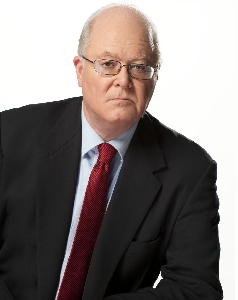Rank-and-File Catholics Hold the Line

Contact: Catholic League for Religious and Civil Rights, 212-371-3191, pr@catholicleague.org
NEW YORK, Oct. 10, 2018 /Standard Newswire/ -- Catholic League president Bill Donohue (photo) comments on a Pew report on Catholics released October 10:
A report by the Pew Research Center, "7 Facts about American Catholics," restates data from previous Pew surveys on Catholics in the United States. As usual, it reports on whether Catholics think the Church should change its teachings on various social issues.
Why "as usual"? Because many researchers, academicians, pundits, and reporters love to point out the alleged divide between rank-and-file Catholics and the official teachings of the Church. Moreover, these same people show very little interest in asking Protestants, Jews, and Muslims whether the teachings of their religion should be changed.
The Pew report notes that 46% of Catholics in 2015 said they thought the Church should change its teachings and policies on gay marriage. But this figure is inflated: it is not representative of rank-and-file Catholics.
Merriam-Webster defines "rank and file" as "individuals who constitute the body of an organization." If we consider practicing Catholics, those who attend Mass weekly, as the "rank and file," then only 37% think the Church should accept gay marriage. No doubt that figure would drop if respondents could voice their position privately (as in a voting booth): it takes courage to publicly state a view that is countercultural.
Should those who are not practicing Catholics, i.e., those who do not attend Mass regularly, be counted as Catholic in a survey? This is important because including them in the aggregate data--the figure reported by the media—distorts what rank-and-file Catholics think.
Two years earlier, in 2013, Pew asked Catholics if the Church should "maintain traditional positions" or "move in new directions." 63% of practicing Catholics said the Church should "maintain traditional positions," while only 42% of non-practicing Catholics felt that way. Since practicing Catholics are the heart and soul of the laity, as well as the Church's bread and butter, it would make no sense for the Church hierarchy to abandon its traditional positions in favor of "progressive" ones.
Finally, asking Catholics, or anyone, if they think the organization they belong to should alter certain positions is not an expression of demand: there is a profound difference between a preference and a demand. Yet the latter is how the media spin it, feeding the perception that Catholics are at war with Church teachings. This is propaganda, not serious social science.




 Sign Up to Receive Press Releases:
Sign Up to Receive Press Releases: